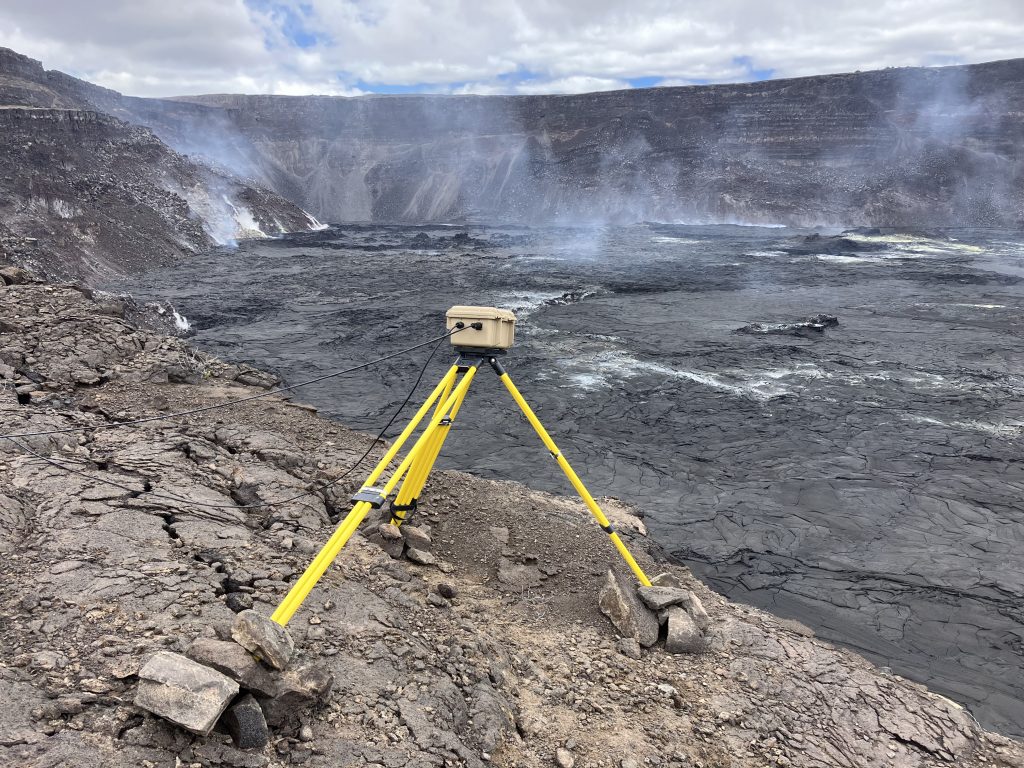Elevated unrest continues in Kīlauea summit area
This story was updated at 8:31 p.m. Sept. 2.
Kīlauea is not erupting; however, the summit of the Big Island volcano continues to exhibit signs of elevated unrest.

According to the Hawaiian Volcano Observatory as of shortly after 8:30 a.m. this morning, elevated seismic activity continues in an area south of the summit caldera. Steady rates of earthquakes have persisted in the area since Aug. 22, with no notable swarms in the past day.
Most of these earthquakes have occurred at depths of 1 to 2 miles below the surface, lacking upward migration.
Following a three-day period of inflation, summit tiltmeters began tracking steady deflation at about 8 a.m. the morning of Sept. 1, which continues today. Since the end of the last eruption in June, the general trend has been slow, long-term summit inflation.
The seismic and tilt data indicate that Kīlauea’s summit is becoming increasingly pressurized. Similar episodes of earthquake and ground deformation happened prior to the December 2020 and September 2021 eruptions.
The unrest is currently confined within Kīlauea’s summit region and — if it continues — could escalate to an eruption in the coming days, weeks or months.
The activity could also decrease because of intrusion of magma underground or other changes, resulting in no eruption. Furthermore, levels of activity are expected to rise and fall during this period of unrest.
Kīlauea’s volcano alert level remains at Advisory.
Sulfur dioxide (SO2) emissions from the summit remain low. No active lava has been observed since June 19 in Halemaʻumaʻu crater. A live-stream of the inactive western lava lake area is available on YouTube.
No unusual activity has been noted along the volcano’s East Rift Zone or Southwest Rift Zone.
For discussion of current Kīlauea hazards, click here. Visit the Hawaiʻi Volcanoes National Park website for visitor information.
The Hawaiian Volcano Observatory continues to closely monitor Kīlauea volcano.
A magnitude-2.6 earthquake about 5.6 miles east-northeast of Pāhala in the southern section of the Big Island at a depth of about 20 miles was also reported just before 11 a.m. Saturday. There were no felt reports as of just before 3 p.m. today.
Another magnitude-2.6 temblor happened shortly before 7 p.m. Saturday about 8 miles south-southwest of Volcano at a depth of about 2 miles. There were no felt reports as of 8:30 p.m. today.

Sponsored Content
Comments





_1770333123096.webp)


